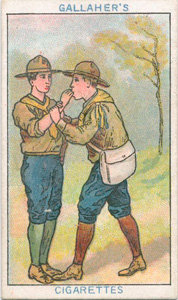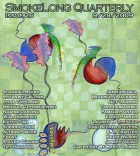“Pregnant with Peanut Butter” is sardonically funny, somewhat like the surrealistic stories in your amazing collection, Elephants In Our Bedroom. In the world of this story, and others of yours, cruelty is mixed with humanity, humor blends with horror. What inspired this story? What inspires this way of seeing people in the world?
I think there’s a lot of violence in my stories, and in general, bad things happening to the characters, because I’ve always been a fan of raising the stakes. Often, the way I choose to do that is through a random act of violence, or some sort of unbelievable set of circumstances colliding and befalling the protagonist. What greater stakes are there than when your life is on the line, or when you’re in a great deal of pain?
I also subscribe to the notion that if you’re going to write a story and make up a character to populate that story—your protagonist—you should tell the story on the most pivotal, life-changing, odd, and/or intense day of that character’s life. When you think about it, why would you choose any other day? What, am I going to completely make up a human being, a character I want my readers to believe in, then choose the sixth-most interesting day of their life? The third-most? Even the second? I’m driven by this principle when I start a draft of something new: What’s the one day in the life of this person that’s worth telling a story about? Then I go from there.
I know there are a lot of stories out there where writers deal with the fallout or after effects of some horrible event, but when I start a story and start thinking about fiction basics, I’ve decided that I need to tell the story, not how the characters react to or recover from the story. Again, that often leads to a weird and sometimes violent event. After all, don’t we all have at least one event in our lives that’s movie-level violent or distressing?
If I’m going to bother making up a character and then tell their story, I want to catch them at those moments, the day in her/his life that’s most unforgettable.
I’m intrigued by how power and sex become intricately entwined in “Pregnant With Peanut Butter,” and how your two characters themselves begin to seem, to the reader, rather like a lab experiment. What intrigues you about characters that seem driven to challenge each others’ mortality?
Most of my characters, at least the ones in the book and then in this story, are naive men. Maybe not naive, but at the very least unreliable in that he’s the last one in the story, including the reader, to know what’s going on. I’m not sure why I use that angle other than it’s the angle I understand. More often than not, I’ve found myself in that situation, as I just don’t think about things that much. It’s either that I’m off in my own world or I’m not patient or smart enough to listen before talking. So, in a lot of ways, those guys are me. Or how I think I project.
So, combined with what I said above, that leads my narrators to precarious situations, at the mercy of the other characters in the story. Nobody’s more vulnerable than someone who is earnest, eager, and a step behind everyone else.
This particular story, however, didn’t start out like that. It’s one of the first stories I wrote after my book came out, so I didn’t want to write a story too much like the ones in the book. The story started out with the characters being on more even footing, that this was going to be both their ideas (the original germ of the story was me wondering whether anaphylactic shock would produce the same result in autoerotic asphyxiation as choking… for some reason). But as I started drafting, I found that I couldn’t make it work, that I didn’t want to write a story about someone willing to do this to himself. I kept thiking, as I was coming up with dialogue, things like, “Hey babe, I got an idea. Whattya say we amscray outta here?” That character, in the first draft, wasn’t all that interesting to me. I just couldn’t pull him off and make him at all sympathetic.
Once I realized I wanted the story to be funny, I went back to the step-behind guy I’d been used to. As soon as I got that down on the page, created the evil pharmacist neighbor, it made sense. And so it went.
The past hugely affects the present in this piece, the grown child needing to relive the terrifying moment of capture he experienced as a kid leading to near death, and sexual perversion. Giving us the strange, traumatic background about your main character makes this story feel psychologically accurate. Can you discuss character motivation—do you discover it, or plan it, when writing stories?
Motivation is definitely something I had to work on, something I had to figure out later. It’s probably the reason it took me ten years to write Elephants in Our Bedroom, because I don’t think I understood that when I finished my MFA, or at least I wasn’t as concerned with it as I should have been. Before, stories just happened, characters reacted, and that was it. But then I remembered at some point that stories are about the choices characters make in certain situations, and if the reader doesn’t understand those choices, then the story won’t really make sense. My stories were fast-paced, random, and without much depth.
As with a lot of my stories, I still go ahead and write the story without backstory, put the character in those situations and see what he or she does. Then after that first draft of the frontstory is done, or at least when I figure out what’s going to happen, I go back and make up the backstory. That’s a part of the process I particularly enjoy, when I can go in and write a whole new story and attribute it to my protagonist, see if I can make them fit, see if somehow one leads to the other.
With the character in the peanut butter story, I was lucky in that the backstory I was thinking of worked out so well. I really don’t know what would lead a guy into that situation willingly, other than the fact he’s inexperienced, has been in a “dry spell,” and the neighbor is particularly gorgeous and strangely accommodating. That would almost do it right there, even without the backstory, so I was tempted to skip that part and not have backstory.
But I had this anecdote about the creepy house with all the trees in my head and I used that and it worked. That’s a real house, by the way, a half a block from the house I grew up in in Calumet City, and I was absolutely terrified of it until we moved when I was 12. I’m the same age as Adam Walsh and I’d seen that TV movie and remember the scene where Daniel J. Travanti upends the couch and goes into hysterics, screaming, “They found our baby’s head!” I basically lived my childhood assuming most adults were plotting to snatch me and cut off my head; thank God I had no idea what sexual assualt was at the time, as I can imagine my fears would have been that much worse. But I had to walk past the creepy tree-covered house every day on the way to and from school and I always ran past, hoping to avoid whoever was waiting to pull me into his lair and do awful things. Enter the man in his van and the trip to his shed.
What writers are you currently reading? What are your favorite places to find inspiration for your creativity?
I’ve gotten to read a few books this summer. I read Suzanne Burns’ new book “Misfits and Other Heroes” and liked it a lot. I liked Mary Miller’s book “Big World.” I spent a lot of time with Jean Thompson’s new collection, “Do Not Deny Me”, really savoring it. It’s a great book. I think I enjoyed Kevin Wilson’s “Tunnelling to the Center of the Earth” the most. Kevin’s most like the stories I would like to have written, which means a lot to me.
I just opened a book by Sam Lypsite, “Venus Drive”, which I’ve had for a while and read one story from. So far, so good. I’ve ordered the new book by Blake Butler and the Wells Tower book, too, just to see what’s going on there. I also have “On the Winding Stair” by Joanna Howard on deck. She’s an old friend from BG and I look forward to seeing what she’s been up to.
I’ve had more time to read this year, I think, as my son has gotten older—he’s three—and I’ve gotten a better grip on how to organize my time. That’s helped the creative process a lot, seeing what other people are doing, and more importantly, stealing from them what I can. Writers should read because it’s good practice, seeing words on the paper, arranged like they are, and because they should be taking from their peers as much as they can, be it an arc, a character, or even a phrase.
I really like being around writing and reading and books and people who are involved in those things. That’s what inspired me. I’ve gotten to read (my work, out loud, to people) quite a bit this year, and being at those events, meeting other writers, hearing what they do, and most of all, having people hear me and give me good will really gets my butt in the chair, gets my mind working. I read a few times with Matt Bell and he’s a dynamo of creativity and productivity. I’m going to start calling him “Lil’ Joyce” in honor of Joyce Carol Oates and her regimen. I got to be in Literary Death Match in Chicago and read “Pregnant With Peanut Butter.” It propelled me into the finals. It was exhilerating to to be in my hometown, have drunk, artsy Chicagoans cheer for me. Or for the character in the story. Or maybe for the pharmacist.
Come to think of it, it was probably the pharmacist.
What are you working on now? What is next?
I’m trying to work on a novel about my summer job, beer vending at Wrigley Field. It’s going pretty well, but I keep writing stories in-between. I love writing stories, starting something and finishing it. That’s the hardest part of the novel: The end is so far away, even though I’ve written the last paragraph and am writing toward it. I like finishing products. You can’t do that in a night or a weekend with a novel, as I’m used to with stories. So I’m still writing stories, starting to compile the second collection, and at the same time, more or less forciing myself to do the novel (which I enjoy doing in another way).



 The SmokeLong Grand Micro Contest (The Mikey) is now an annual competition celebrating and compensating the best micro fiction and nonfiction online.
The SmokeLong Grand Micro Contest (The Mikey) is now an annual competition celebrating and compensating the best micro fiction and nonfiction online.